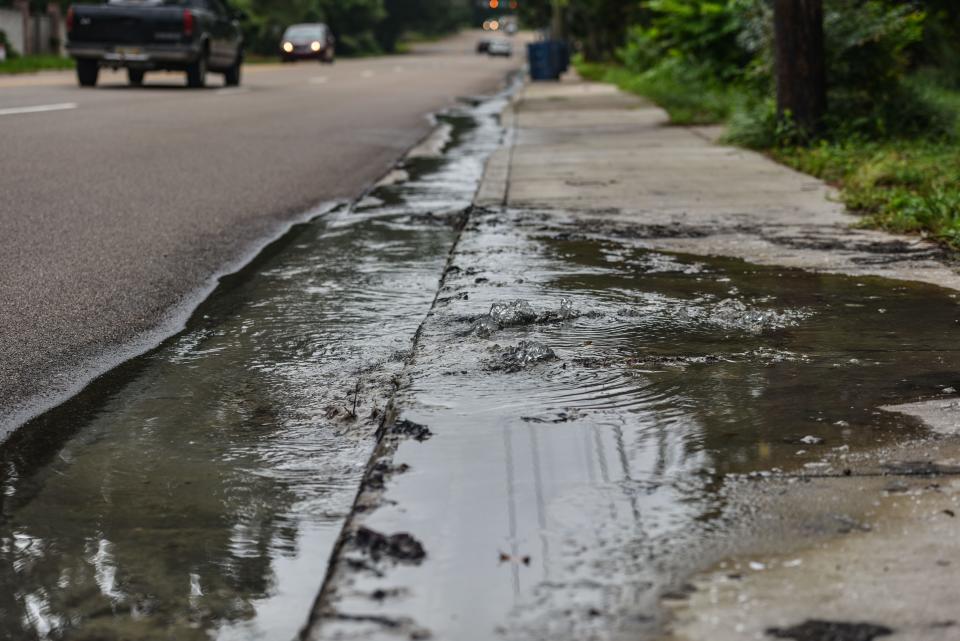A waste-hauling company that took part in a scheme to illegally dispose of millions of gallons of industrial waste into Jackson’s sewer system has settled with the city.
The company in question, Partridge-Sibley, has agreed to settle with the city for $630,000. The Jackson City Council will vote on whether to approve the settlement during their Tuesday meeting.
Three defendants associated with Partridge-Sibley were also named in the city’s complaint. Those defendants include Justin Mahfouz, Louie Garrett and Charles Carroll Partridge, the executor of the estate of Donald Richard Partridge who died in March. It is unclear what each of the defendants positions are in the company.
Partridge-Sibley is just one of three companies the city has sued, alleging they took part in consistently dumping corrosive waste into the sewer system. The two other companies are Gold Coast Commodities, a fats and oils refinery in Brandon, and Rebel High Velocity Sewer Services, based in Jackson.

Where does waste go in Jackson? How Jackson sewage is treated: From the toilet to the Savanna Plant to the Pearl River
A quick look at the scheme
In 2021, the city filed a lawsuit alleging Gold Coast Commodities has “consistently discharged its corrosive waste into the sewer system near its facility, with the waste running into the Jackson sewer system through transmission lines that connect to Jackson’s wastewater treatment plants,” according to the city’s lawsuit obtained by the Clarion Ledger.
According to past Clarion Ledger reporting, city officials previously asserted the untreated waste has damaged the city’s infrastructure, helping contribute to Jackson’s wastewater woes. The city is currently under a consent decree from the Environmental Protection Agency for violations of the Clean Water Act for overflows of sewage from its pipes across the city and at the Savanna Wastewater Treatment Facility.
“Gold Coast’s illegal dumping into the sewer system contributed to the capacity strain and sewage overflows that have plagued the City’s wastewater collection and sewer system for many years,” the lawsuit states.
Gold Coast, which was investigated by the Mississippi Department of Environmental Quality for numerous violations beginning in 2016, brought in Partridge-Sibley to haul the waste away to Rebel High Velocity Sewer Services’ facility. The city alleged the companies illegally disposed of the waste into the the sewer system “on hundreds of separate occasions” without a permit or treatment efforts.
“After transporting Gold Coast’s waste to the Rebel facility, which was not a permitted waste disposal location, Partridge-Sibley disposed of the waste into the public sewer at an illegal discharge point,” the lawsuit states.
Fixing Jackson’s sewers: Ted Henifin to lead team in charge of Jackson sewer
The City of Brandon also filed a lawsuit against Gold Coast in 2018.
In January 2021, Andrew Walker, the owner of Rebel High Velocity Sewer Services, admitted to having illegally discharged 3 million gallons of industrial waste into the Jackson Sewer System in an effort to avoid the expense of treating the waste. It’s unclear if Walker has been sentenced as no record is on file.
Gold Coast’s president, Thomas Douglas, plant manager, John Welch Sr. and vice president, Robert David Douglas, have also all been indicted.
Jackson ward boundaries set to change: Jackson residents frustrated over lack of community input regarding redistricting. See more
How Gold Coast produces waste
In operation since 1983, Gold Coast Commodities refines various agricultural products and makes them into fats and oils. Among other applications, the fats and oils are used for industrial processing, animal feed and biofuels.
Gold Coast also refines used cooking oil purchased from restaurants and food processing facilities. The refining process involves using sulfuric acid to split soap stock into its oil and water component parts. The fatty acid or oil phase can then be sold as a biofuel or animal feed ingredient, while the acid water phase must be properly disposed of as an industrial waste, according to past Clarion Ledger reporting.
The refinement process creates a byproduct that produces thousands of gallons of acidic and highly-corrosive wastewater every week, according to the city’s lawsuit. If the wastewater isn’t kept at an extremely high temperature it becomes too thick to flow at normal temperatures, which could lead to blockages if not disposed of properly.
This article originally appeared on Mississippi Clarion Ledger: Jackson MS reaches settlement with company that dumped waste into sewers
Source Agencies


